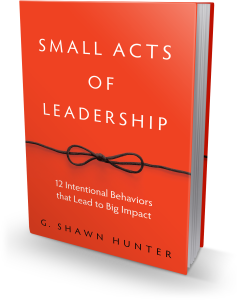You know what the bystander effect is. It’s a social phenomena in which people fail to intervene or act on someone else’s behalf because no one else is doing anything. Your boss has a ridiculous idea but you don’t say anything because no one else does.
 Imagine, for example, you are sitting in a waiting room with two other people. You glance up to see a young woman hobbling toward the glass door of the waiting room, on crutches with a cast on her foot. She struggles with the door, greets the receptionist with a wince, and is asked to wait her turn to be called. But all the chairs in the waiting room are taken. What do you do? Do you help her with the door? Do you offer her your chair?
Imagine, for example, you are sitting in a waiting room with two other people. You glance up to see a young woman hobbling toward the glass door of the waiting room, on crutches with a cast on her foot. She struggles with the door, greets the receptionist with a wince, and is asked to wait her turn to be called. But all the chairs in the waiting room are taken. What do you do? Do you help her with the door? Do you offer her your chair?
This is a real study by David DeSteno and his colleagues at Northeastern University. The other people in the waiting room are actors, including the receptionist and the woman with the cast on her foot. Everyone is watching what you will do, how you will act in that moment.
I like to share this scenario in my presentations, and ask the question: What percentage of study participants do you think stood up, and offered help? People always guess a high number of 60%, 70%, 80%. Everyone has high hopes for humanity. I tell the audience the actual number is 15%. At which point people groan and sigh, and insist they would have done something. Well, maybe.
And you know who Dan Price is. He’s the guy who slashed his personal CEO salary to give at least 70K a year to every employee in his company. He was ridiculed, scorned, and called a fool. Pundits said he would be broke within the year, and his employees “on bread lines.”
That was six years ago. Recently on twitter he posted:
6 years ago today I raised my company’s min wage to $70k. Fox News called me a socialist whose employees would be on bread lines. Since then our revenue tripled, we’re a Harvard Business School case study & our employees had a 10x boom in homes bought. Always invest in people.
- Dan Price, CEO of Gravity Payments
Dan is a special guy, but he’s not unique. There are lots of people all over the world doing good things right where they are – at the intersection of their skill, passion, and impact. One important difference is that he is talking about his work. He’s vocal about his impact. He didn’t just provide a minimum salary to his employees and quietly watch the results. He has been an outspoken public defender of his actions in the news, and social media.
It’s important to not only do the thing you believe in, it’s important to talk about it. Not in a self-important yay-me humble-brag kind of way, but instead because you understand the power of your actions to be a force for good, and inspire others. That’s how your movement starts. That’s how the tribe is built.
For example, in the United States less than 20% of the population is either doubtful or dismissive about climate change. Over 80% of the population is alarmed, actively concerned, or at least cautiously accepting that it’s happening. In the other words, the overwhelming majority of Americans have some degree of education, concern, and personal experience with climate change. But they still don’t talk about it.
Many of us still don’t talk about it because that small minority can be expressively vocal in dismissing the science. The critics are loud, and we sense their population is bigger than it is. We are uncertain about the views of the person we are speaking with. What if we offend them? What if we say something that contradicts their belief system?
So we say nothing, but maybe we do something – something we understand is a nudge, a gesture in the right direction. We make a personal high impact, low cost, life change to adjust our carbon footprint. We travel less on airplanes, or eat lower on the food chain. Those changes cost nothing. Maybe we even spend a little money on electric vehicles or a home energy audit.
And it’s true that even if you do those things and you get your own family CO2 footprint down from the average 16 tons a year to 12 tons a year, it still won’t make a difference on the planet. Your own personal carbon footprint is less than .0000000003% of the 43 billion tons a year that the world emits. It’s less than a rounding error.
Still reading? This is why it’s important to talk about your actions. Because while what you do personally on climate change might be negligible, talking about it with your family, your neighbors, your community, and demonstrating your commitment through your actions inspires others to act.
I used climate change as an example, but it could be anything you care about that moves the needle toward a kinder, more livable world. It could be bullying, suicide prevention, humanitarian relief, or dog shelters. The point is that if you aren’t a bully, that’s great. But a more powerful gesture is intervening a bullying event you witness, and explaining why. Or adopting a rescue dog, and then communicating with your friends and family why it was important to you.
Our actions are invitations to change. Our actions are demonstrations and assurances to others of how to behave in the face of uncertainty.
[dt_divider style=”thin” /]
Ever been ghosted at work? Customer or colleague won’t return your message? We wrote a course on how to handle that.
Have a look: What to Do When You Are Ghosted
 Our company Mindscaling, is busy building powerful human and digital learning experiences for companies of all sizes. My book Small Acts of Leadership, is a Washington Post bestseller! You can grab a copy now.
Our company Mindscaling, is busy building powerful human and digital learning experiences for companies of all sizes. My book Small Acts of Leadership, is a Washington Post bestseller! You can grab a copy now.
In other news, our son and I bicycled across America with two other dads and their teenagers. We published a new book about it called Chasing Dawn. I co-authored the book with my cycling companion, the artist, photographer, and wonderful human jon holloway. Buy a copy. I’ll sign it and send it to your doorstep.



